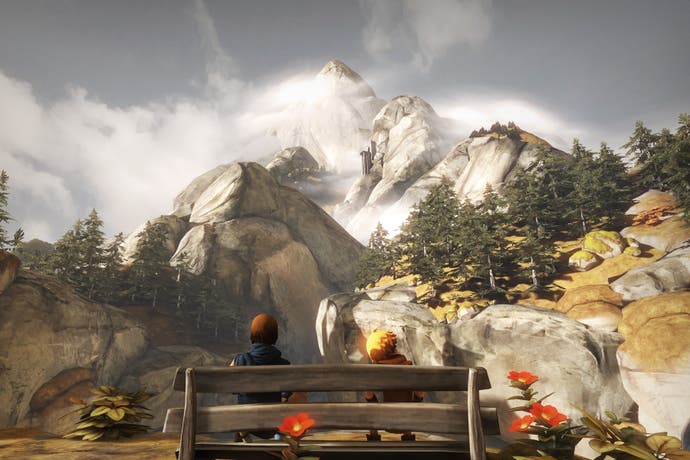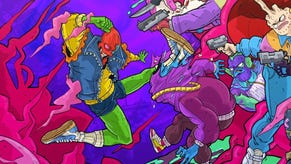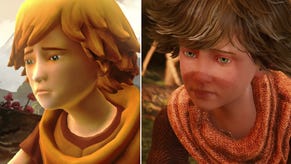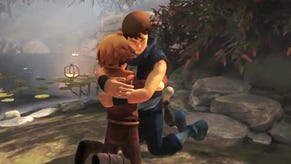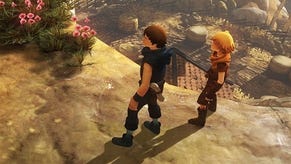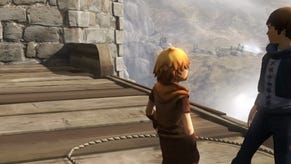Starbreeze's latest looks like it could be this year's Journey
Brothers: A Tale of Two Sons is small, thoughtful and genuinely charming.
Between losing several of its key staff to a new start-up and suffering a high-profile flop, the past few years presumably haven't been the easiest for Starbreeze, the Swedish studio famed for muscular first person shooters such as The Chronicles of Riddick: Escape from Butcher Bay and The Darkness.
"Starbreeze has always been a great studio, and still is a great studio," says COO Mikael Nermark. "But the industry's changed a lot. When I joined Starbreeze, I always wanted to go back to the roots of making games, where you have creatives running things and you're making games for passion. I'm not saying that people aren't making games for passion, but big budgets and big teams - it's layers of different management, and layers of different thoughts. I want to get away from that."
He's steered Starbreeze well away from that: you couldn't get any further from Syndicate, the big-budget licensed shooter produced for EA, than with Brothers: A Tale of Two Sons, a gentle, quietly thoughtful top-down adventure game that's bereft of both hyper-violence and explosions.
The first new IP from Starbreeze in over a decade, this isn't tied down to a license, and it most definitely isn't another first person shooter: instead it's a short three to four hour experience pitched to the studio by Swedish filmmaker Josef Fares, and brought to life by a relatively slim team of 30 within the studio.
Nermark insists Brothers isn't a reaction to the disappointment of Syndicate, nor a desire to get out of a double-A landscape that's stagnating fast. "We made this from scratch, and this is our own, this is what Starbreeze made," he says. "It's not Starbreeze making an EA IP, or an Activision IP or whatever. I wouldn't say we're reaching a dead end in the industry, but I saw the same things coming up - and whatever game we make, I think we need to bring something new to the table. And with Brothers, I think we're doing that. So that was something that really appealed to me."
At first Brothers doesn't feel like it's from the Starbreeze that made The Darkness, Riddick or Syndicate. It certainly doesn't feel like it's the studio that's traded on noisy gunplay and solid first person mechanics, nor the one that's traded in gritty worlds torn from the near future.
Spend a little time with Brothers, though, and then you'll begin to see the Starbreeze you know - the one that's always sought to perfect whatever it's set its mind to, and the one that's renowned for technical excellence and a smart eye for innovation. Brothers: A Tale of Two Sons may be a top-down fantasy game that's more Fable than Fallout, but it's oozing a certain quality that's unmistakably the work of the Swedish studio.
Set in an imagined fairytale land, Brothers is a short and breezy adventure designed to be played through in a sitting or two. It isn't about the length of the experience, the studio has argued - it's about the quality, and that's something that's evident in abundance here.
You pay a pair of siblings as they set out on a quest to cure their father of a strange disease. It's a co-op game at heart, though there's something of a twist: in Brothers, you're co-operating with yourself, with each character being controlled by separate analogue sticks.
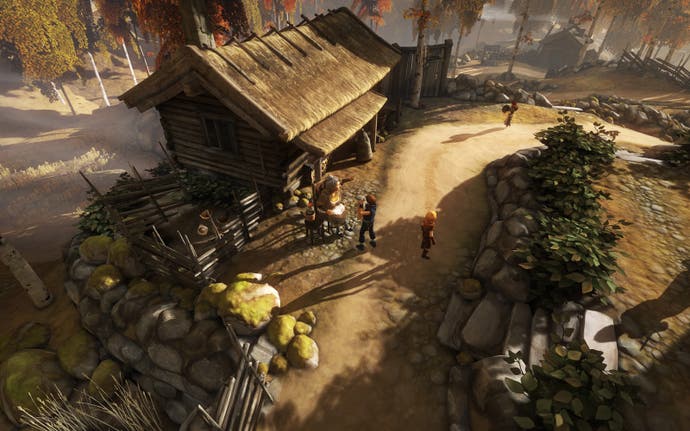
It's slightly disorienting at first, although there's a smart camera that endeavors to ensure that the character you're controlling with the left stick is always on the left hand of the screen, and that the one you're controlling with the right is always on the right.
Brothers is an extremely simple game to play - and it's a simplicity that's one of its most endearing traits. The triggers allow each individual brother to interact with the world around them, and the complexity comes in how seemingly every in-game object sparks off a different reaction. If the elder, more sensible brother chooses to interact with an old lady in a rocking chair, for example, he'll produce a map and ask for assistance in his quest. If the more mischievous smaller brother does the same, he'll jostle her in her chair, much to his own delight.
It's light but incredibly playful, and Brothers promises a tonne of these interactions and gentle little puzzles to help keep things fresh through its brief running time. This might not be what you'd expect from the studio that brought you Syndicate, but this could well be Starbreeze's best new game in years - a gentle, original game that could well be this year's answer to Journey.
